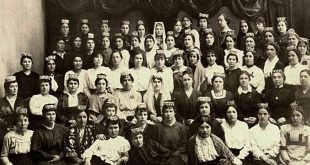There was no doubt that Allah had legislated fast breaking in Ramadan for whoever traveled to a distance that made him/her shorten his/her prayer. The umma agreed upon this unanimously and the Quran and the Sunna confirmed it clearly.
Allah said: (The month of Ramadan is that in which the Quran was revealed, a guidance to men and clear proofs of the guidance and the distinction; therefore whoever of you is present in the month, he shall fast therein, and whoever is sick or upon a journey, then (he shall fast) a (like) number of other days; Allah desires ease for you, and He does not desire for you difficulty, and (He desires) that you should complete the number…) 2:185.
When the Prophet (s) traveled during Ramadan, he broke his fasting and declared to the people that he had broken his fasting. He considered fasting in travel as disobedience. He said: “It is not of piety to fast in travel.” We shall quote all the tradition later on.
Fatwas of Ayatollah Sistani regarding Fasting by a Traveller
- A traveller for whom it is obligatory to shorten a four Rak’ats prayers to two Rak’ats, should not fast. However, a traveller who offers full prayers, like, a person who is a traveller by profession or who goes on a journey for a haraam purpose, should fast while travelling.
- There is no harm in travelling during the month of Ramadhan, but it is Makrooh to travel during the month to evade fasting. And similarly, it is Makrooh to travel before the 24th of Ramadhan unless travelling is undertaken for the purpose of Hajj or Umrah or for some important work.
- If it is obligatory on a person to observe a particular fast other than the fasts of Ramadhan, like, if he has undertaken to fast on behalf of someone against payment, or if it is the fast of the third day of I’tekaf, he cannot travel on that day, and if he is already on journey then he should make a Niyyat to stay there for ten days, if possible, and keep the fast.
And if it is an obligatory fast of Nadhr, travelling on that day is permissible, and it is not necessary to make an intention of staying there for ten days. Though, it is better not to travel unless it is absolutely necessary, and if he is already on a journey, he should have the Niyyat to stay there for 10 days. - If a person makes a vow to observe a Mustahab fast and does not specify any day for it, he cannot keep the fast while travelling. However, if he makes a vow that he will observe fast on a particular day during a journey, he should observe that fast during the journey. Also, if he makes a vow that he will observe a fast on a particular day, whether he is journeying on that day or not, he should observe the fasts on that day even if he travels.
- A traveller can observe Mustahab fasts in Madinah for three days with the Niyyat of praying for the fulfilment of his wish, and as a precaution, those three days be Wednesday, Thursday and Friday.
- If a person does not know that the fast of a traveller is invalid and observes fast while journeying, and learns about the rule during the day, his fast becomes void, but if he does not learn about the rule till Maghrib, his fast is valid.
- If a person forgets that he is a traveller or forgets that the fast of a traveller is void, and observes fast while journeying, is fast is invalid.
- If a fasting person travels after Zuhr, he should, as a precaution, complete his fast. If he travels before Zuhr and had an intention from the previous night to do so, he cannot fast on that day. As a precaution, he cannot fast on that day even if he had no intention to travel from the previous night. In both the cases, he cannot break the fast till he has reached the limit of Tarakkhus. If he does, he will be liable to give Kaffarah.
- If a traveller in the month of Ramadhan, regardless of whether he was travelling before Fajr, or was fasting and then undertook the journey, reaches his hometown before Zuhr or a place where he intends to stay for ten days, and if has not committed an act which invalidates a fast, he should fast on that day. But if he has committed such an act, it is not obligatory on him to fast on that day.
- If a traveller reaches his hometown after Zuhr, or a place where he intends to stay for ten days, he cannot fast on that day.
It is Makrooh for a traveller and for a person who cannot fast owing to some excuse, to have sexual intercourse or to eat or drink to his fill, during the day time in Ramadhan.
 Ijtihad Network Being Wise and Faithful Muslim in the Contemporary World
Ijtihad Network Being Wise and Faithful Muslim in the Contemporary World
